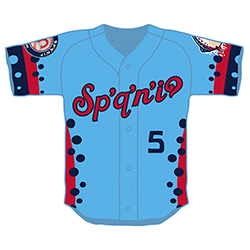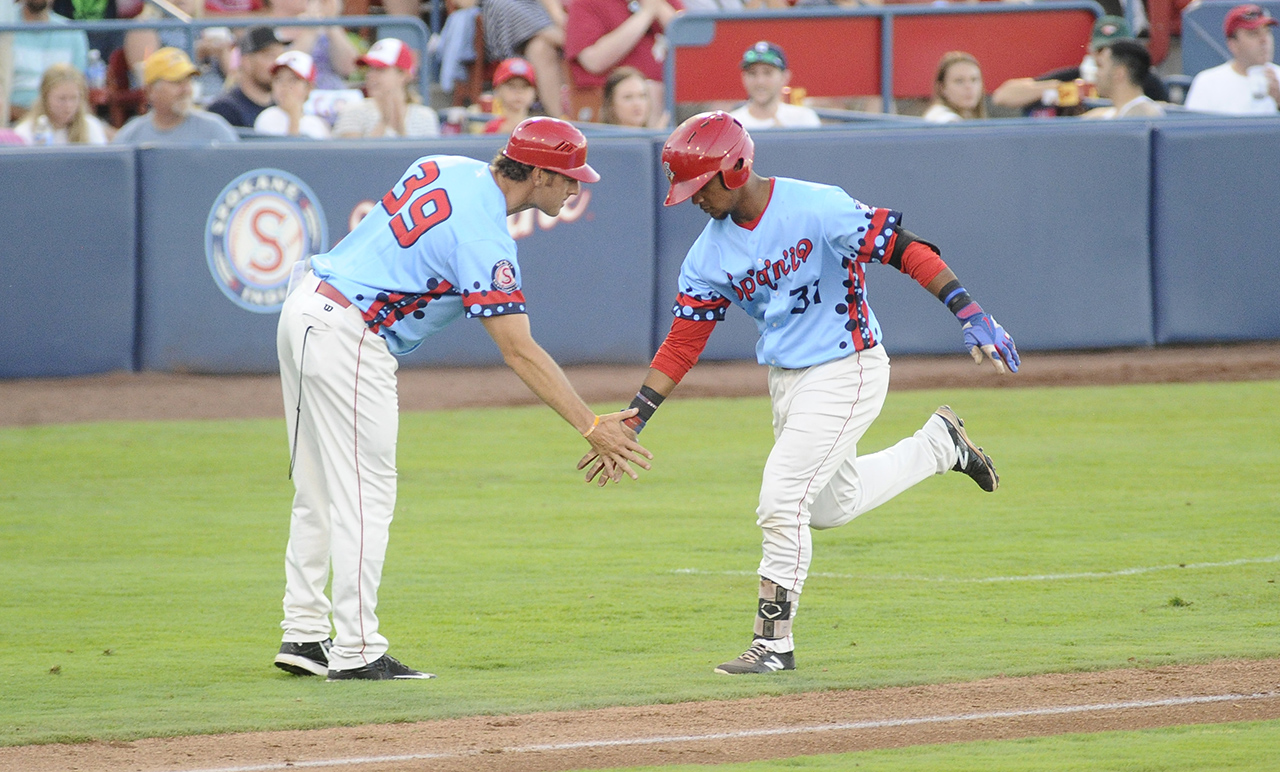As MLB teams like the Cleveland Indians and Atlanta Braves reevaluate team branding in the wake of heightened racial awareness, the Spokane Indians (Short Season A; Northwest League) are reaping the benefits of over a decade of engagement with the local Spokane Tribe.
In the wake of the Washington NFL team dropping the Redskins moniker, the Indians and the Braves front officials have pledged to reexamine their name and branding as well. Cleveland’s ownership has committed to review the ramifications of the Indians name and branding, while the Braves management has met with the Eastern Band of Cherokee Tribe and the “Chop On” signage removed from Truist Park. We’ve already seen some MLB teams take action in this new era of social justice: In June the Minnesota Twins took down a statue of former team owner Calvin Griffith at Target Field, while the University of Cincinnati removed Marge Schott’s name from the school’s ballpark. (Our story here.) Prior efforts included the renaming of Yawkey Way back to its original name, Jersey Street, after the Boston Red Sox petitioned to change it as a way to distance the team from former owner Tom Yawkey’s racist past.
 In the case of the Spokane Indians, there have been no similar talks to change the team name or alter any of the branding: management has been meeting with the Spokane Tribe since 2006 to gauge their response to the Indians name. The team had dropped a stereotypical Indians logo when the discussions began and gone to the point of offering to change the team name–a move rejected by the Spokane Tribe. The team’s jersey sports Sp’q’n’i’ lettering–to the right is the special-edition jersey used in a Redband Rally Campaign–which is the Salish (the local Indigenous language) spelling for Spokane. Similarly, the team has worked with the tribe on ballpark displays highlighting the culture and history of the Spokane nation. The end result seems to be working for both the team and local tribal officials:
In the case of the Spokane Indians, there have been no similar talks to change the team name or alter any of the branding: management has been meeting with the Spokane Tribe since 2006 to gauge their response to the Indians name. The team had dropped a stereotypical Indians logo when the discussions began and gone to the point of offering to change the team name–a move rejected by the Spokane Tribe. The team’s jersey sports Sp’q’n’i’ lettering–to the right is the special-edition jersey used in a Redband Rally Campaign–which is the Salish (the local Indigenous language) spelling for Spokane. Similarly, the team has worked with the tribe on ballpark displays highlighting the culture and history of the Spokane nation. The end result seems to be working for both the team and local tribal officials:
“They came and listened to the elders, and that is what really developed the relationship over time,” said Carol Evans, the chairwoman of the Spokane Tribal Council, told The New York Times, “and it has grown like a family partnership unit, where we have a lot of respect for one another.”
Photos courtesy Spokane Indians.
RELATED STORIES: Cleveland to reexamine Indians name, branding; Rethinking ballpark branding in #BLM times; Examining tangled legacies at sports facilities in a #BLM world

